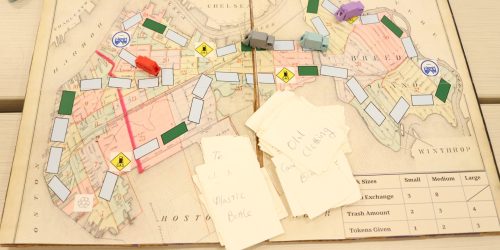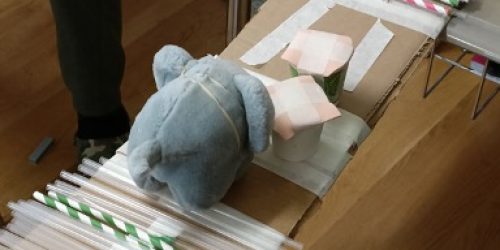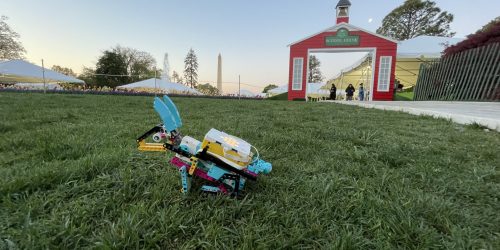This year Tufts CEEO Learning Fellows (OLF) partnered with local informal education organizations in Boston, Malden, Medford, and Somerville to bring engineering to their K-12 students for 60-90 minutes each week. Tufts students worked in the same classroom each week to support hands-on engineering design. There was also a weekly seminar for fellows that addressed progressive teaching of engineering education with special attention to topics of DEIJ and how to be an anti-racist educator. Below, two OLFs reflect on their year in the program.
Victor Aguilar, Class of 2024, Cognitive Brain Sciences/Child Studies & Human Development
This year, I had the opportunity to work with Tufts CEEO as an Outreach Learning Fellow, at the Medford Youth Center with 8-11 year-olds. My interests in diversity, equity, inclusion, and justice in the classroom, lead me to apply for the position. Schools are institutions where children spend the majority of their time. For this reason, I find it essential that we maximize school resources and deepen our knowledge and understanding of effective teaching methods.
From the weekly OLF seminars, I learned to teach children how to broaden their thinking while approaching a challenge or developing an idea. The beauty behind engineering lies in the process of the product. Every week, we designed activities and challenges to stimulate and engage children in the process of engineering. By asking questions and having conversations with the students that would expand their thinking, we wanted to guide their thinking without interrupting their discovery process. The look on a student’s face when the idea clicks is one of the most rewarding feelings for any teacher.
From working with the students, I realized that children’s role in education must change. The common perception of a classroom usually depicts a teacher lecturing with attentive students in their seats. Working as an OLF, critically changed this perception for me. Engagement in the classroom goes both ways, students must listen to teachers just as much as teachers should listen to students. The relationship between student and teacher is critical for the development of both.
Lydia Kresin, Class of 2024, Mechanical Engineering
Our OLF group started with a few design challenges using materials like cardboard and pipe cleaners and then transitioned to using the SPIKE Prime kit. The kids were so excited to be doing robotics and making their creations move. It was neat to see what each student gravitated toward doing – one was building complicated structures but was less interested in motors and coding, another really wanted to understand why everything worked how it did, and others were most excited about making the fastest or strongest robot. I was surprised to see how the students were naturally going through the design process – testing and iterating – in such a matter-of-fact way. I realized that as a teacher, you have to be very receptive and responsive to students because sometimes explicit instruction does not work as well as guiding and building on what they are already doing. It was challenging to balance the students figuring out how to make something work with making sure they didn’t get discouraged if they ran into trouble. However, by the end, they were all so excited by everything they built. I think that this showed them how much fun engineering can be and that there is no one right way to build anything.



